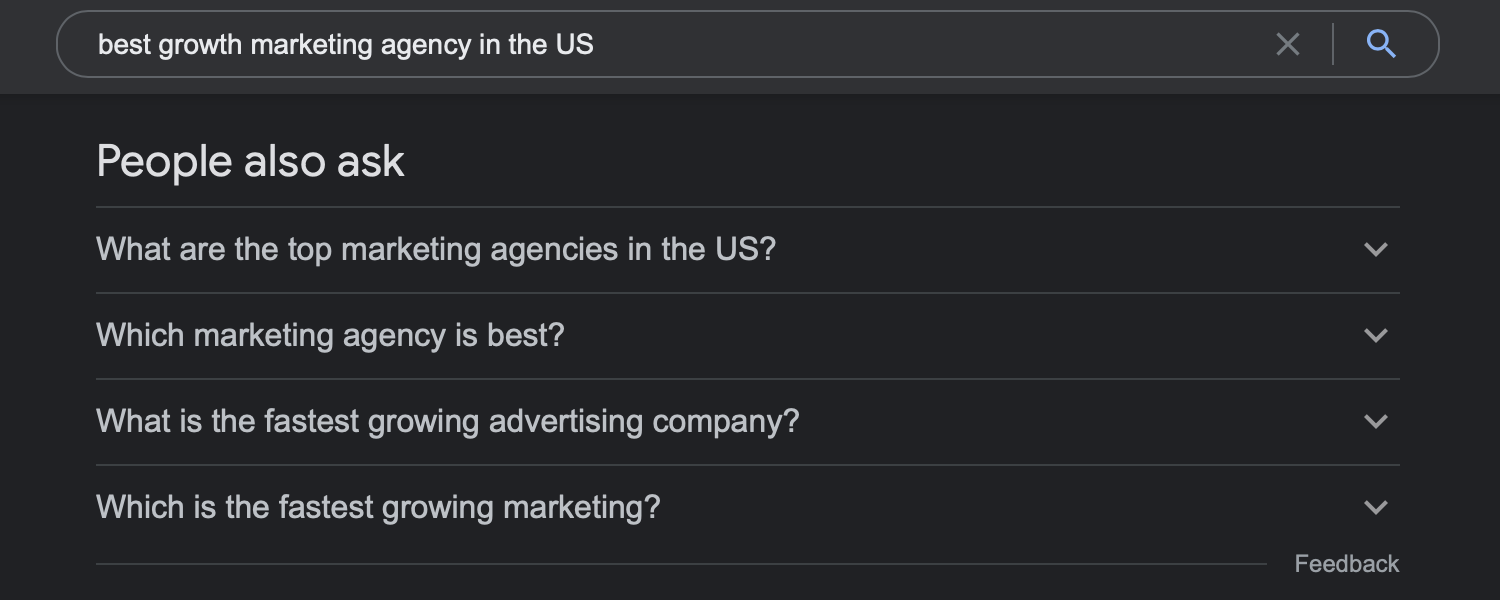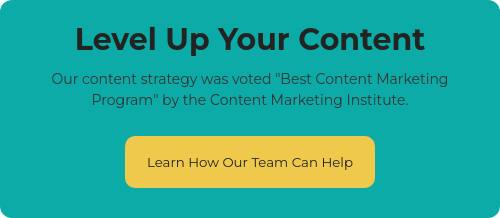You've heard about content strategy and SEO strategy, but what about "SEO content strategy?" Is it just combining the two strategies together? Not exactly. Generally speaking, everything and everyone that cares about search rankings will tell you to first create content that is worthy of ranking (aka is unique, actionable, and hasn't been written a thousand times before). More specifically, it's not as easy as it sounds, and even when you do achieve 10x content, having it work for SEO is a whole other ball game. Or is it?
Content Strategy That Supports SEO
A solid content strategy that works for SEO and a solid SEO strategy that makes content work are individually very important, but they share the same goal — growth for your brand.
Fun fact: In 1999, it took Google one month to crawl and build an index of about 50 million pages. In 2012, the same task was accomplished in less than one minute.
As Google algorithms keep changing, you need more dynamic content that fulfills SEO needs. Gone are the days where you could put out a cute picture of a plant and expect people to find it; now you need to create content that describes what kind of plant it is, how it can be used in cooking or for medicinal purposes (value), and how to grow or forage it (search intent). Sounds like a lot, right? Not when you've built your content with SEO in mind.
How to Evaluate the SEO Value of Your Content
- Basic SEO metrics: Traffic (is your content driving in a lot of traffic to the website?), keyword rankings (does your content frequently rank well for the keywords it uses?), and backlinks (does your content generate good quality backlinks?) are some of the metrics to follow.
- Engagement metrics: Can visitors E.A.T. your content? Meaning, does your content follow expertise, authority, and trustworthiness? Can it be consumed easily? Apart from these, some noteworthy parameters include: is your content bringing new visitors with a healthy sum of returning visitors, is the bounce rate low, and is the CTR high?
- Revenue metrics: Quite naturally, when all of the above are going well, the content will also bring in direct revenue through organic searches.
4 Smart, Useful, and Doable Ways to Leverage Content in Search Results
Optimize Website and Landing Pages
Primary keywords are paramount when it comes to ranking in search results for pages that are important to your business or have the highest CTR. For example, you can look at analytics to understand which website and landing pages convert the most, explore last touch attribution, and understand emails that have the highest open rate and conversion. Take those pages and make sure that the primary keyword is in:
- H1 tags
- Alt tags
- URL
- At least one H2
Another thing to note is SEO copywriting. See what is already working on these pages and how you can translate that onto your other pages that have the potential to rank better. SEO copywriting enables you to ensure the content is already optimized or at least as much as possible. From there on, you can begin testing which version of the page in terms of content works better?
Strive to Rank for Position "Zero"
Ranking for Google's position zero goes beyond making sure the page has a meta description, schema markup, and the right URL structure. Rich snippets make sure the content matches the exact search intent and is able to answer the user query the best out of the hundreds and thousands of similar pages on the internet. This is a way of building your site authority and establishing trust with your visitors and users.
The first step is looking at the website or blog or landing page and understanding its current structure. Does it offer information in a sequential manner? Could anything be shuffled around for better user experience? Structured content helps Google pull that exact information from even articles that don't necessarily follow a word limit. The goal is to have Google understand where to pull the information from.
For example, when you search "best growth marketing agency in the U.S.," you can look for the "people also ask" section and take cues as to what else people are searching for with the same search intent.

Here's how you can achieve it:
- Look at "People also ask" while targeting a specific query related to the content you're looking to optimize.
- Pick two to three of those exact search queries and build them into your content.
- Create explicit answers and use bullets or lists where possible.
Build High-Quality Links
Strong linking on a webpage is a vote of confidence that the content is rank-worthy. We say high-quality link building because Google has, time and again, outsmarted low-quality links and essentially filters them out from rankings. However, the link building strategy needs to be contextual and not random.
When you create unique content or optimize your existing content for healthier SEO, editorially placed links supersede any other. This puts more emphasis on the importance of high-quality, consistent blogging and pillar page formation. When there's topical relevance, linking opportunities become natural. How do you find quick-win link building opportunities? Let's explore further:
- Look at your competitor's link building strategy and compare it with your own. You'll likely find some gaps — pick the ones that could be filled sooner.
- There's always some low-hanging fruit (even outside of your competitor's audit) that you can aim for. Disclaimer: your competitors will also aim for these.
- Link earning is where you will eventually get once you've gained enough competitive advantage. This does mean consistent efforts in that direction and staying away from low-quality, manipulative linking strategies that don't get the links editorially placed.
Leverage Social Media Content
Creating content that benefits SEO is not limited to blog posts, website pages, and landing pages; social media content is equally important. A quick view of your "social standing" in terms of followers, reach, engagement, and conversions through social media will give you the right sneak peek into how beneficial your content is to users. Here's how you can absolutely leverage social media to your advantage:
- Link building: Tagging high-authority profiles, using the right hashtags that truly make an impact, and SEO copywriting for social posts
- Creating the right partnerships: User-generated content (brand advocacy), organic influencers, and strategic non-competitive collaborations to co-create fresh content
- Establishing authority: Creating the content that makes an impact and optimizing existing content, ABM for highly-targeted profiles, and unique video content tactics that ultimately link back to the website
Content That's Made to Measure
Google is the only place where competition matters when it comes to rankings, and that's probably also the only place when you can beat them at their game. Apart from some of these strategies, try exploring Google search and display ads if you'd also like to try paid efforts, along with optimizing your Google Business profile for a power combo!
Don't go overboard though — beating your competition might take some time, even if you've taken the right approach. Remember, you're looking for long-term success, not rapid gains (though you may get some quick wins).







